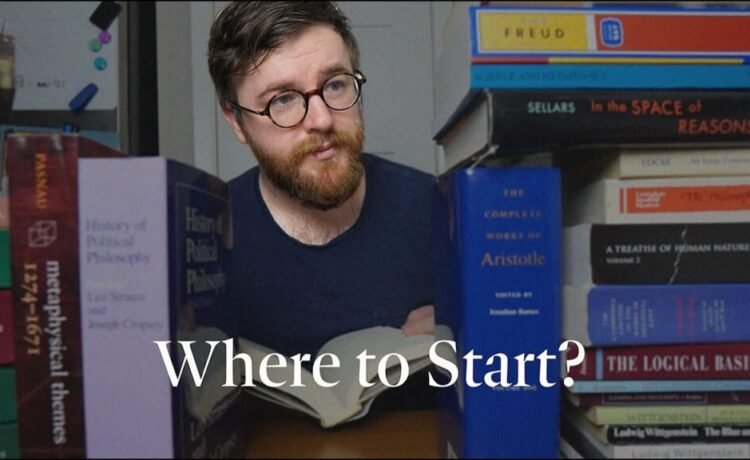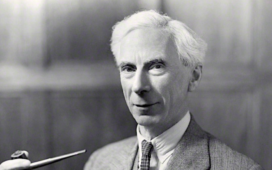One especially appealing aspect of philosophy, as a field of study, is that you don’t have to go anywhere to learn it but the library. And these days, you don’t necessarily have to go there, now that so many philosophical texts have become freely available on the internet. In the video above, philosophy YouTuber Jared Henderson recommends seven books through which anyone can get a solid introduction to the subject. They are as follows: Bertrand Russell’s The Problems of Philosophy, Simon Blackburn’s Think, the complete works of Plato, Marcus Aurelius’ Meditations, St. Augustine’s Confessions, René Descartes’ Meditations on First Philosophy, and John Stuart Mill’s On Liberty.
Why these books? Though written for the general public, The Problems of Philosophy has also proven useful to Henderson in teaching introductory courses, not least thanks to Russell’s eloquent defense of philosophical study itself. Think, a more recently written broad survey, “introduces you to some topics that almost everyone is interested in: free will, the problems of knowledge and rationality, the existence of God, the existence of the self, the problems of ethics.” And given the scope of Plato’s writings, if you carefully read through them all, you’ll be “a remarkably different person at the end of that process.”
The name of Marcus Aurelius, who ruled the Roman Empire in the middle of the second century, has lately become an even better-known than it already was thanks to a resurgence of public interest in Stoicism. Henderson recommends his Meditations as an example of “philosophy as a way of life.” In the Confessions, Augustine blends “poetry, theology, and philosophy in a really compelling way,” dealing with such matters as “the nature of time,” “motivation and the will” and “the metaphysics of evil.” Descartes’ Meditations offers not just a primer on skepticism, but also the contest for the famous line “I think, therefore I am.” Mill’s On Liberty opens the path to trace modern, much-thrown-around political notions (including the titular one) back to their sources.
These books, as Henderson stresses, constitute a starting point, not a goal in themselves. Read them, and you’ll get a much clearer sense of what philosophy deals with, but also where your own philosophical interests lie. The field has a long history, after all, and in that time it has grown so vast that no one, no matter how seriously dedicated, can walk all of its intellectual paths. Whatever the particular realm of philosophy to which your inclinations take you, don’t be surprised if you find yourself revisiting these very same books time and again. Nobody ever truly masters Plato, Marcus Aurelius, Descartes, or Mill, and on some level, philosophy itself keeps its practitioners eternal novices. The important thing is to cultivate and maintain what the Zen Buddhists call “beginner’s mind” — but then, that’s a whole other branch of philosophy.
Related content:
Introduction to Philosophy: A Free Course
Introduction to Philosophy: A Free Online Course from the University of Edinburgh
Based in Seoul, Colin Marshall writes and broadcasts on cities, language, and culture. His projects include the Substack newsletter Books on Cities and the book The Stateless City: a Walk through 21st-Century Los Angeles. Follow him on the social network formerly known as Twitter at @colinmarshall.















